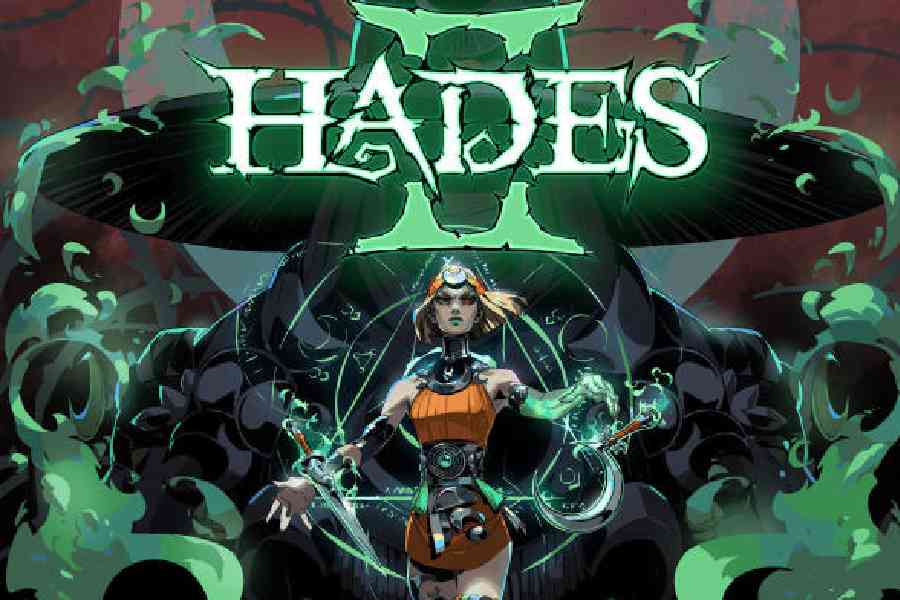When Supergiant Games was wrapping up Hades, the studio concluded it was not quite done. The game’s premise of being trapped in hell had opened paths to untold stories about Greek lore. It needed a sequel.
This was a plot twist for the small independent studio, which had always pursued new ideas — even after its debut game, Bastion, was an immediate hit. Although Hades won numerous accolades and the prestigious Hugo and Nebula Awards, the decision to make Hades II was a hard one.
“To be able to surprise and delight the audience in the same way is a challenge,” said Greg Kasavin, creative director of Supergiant.
Indie hits also face distinct constraints. They often stand out because of a novel element and that buzz does not always carry into a sequel, said Jesper Juul, associate professor at the Royal Danish Academy of Architecture, Design and Conservation in Copenhagen, Denmark.
“The first time people will tweet and post about it and say, ‘Wow, that’s amazing’,” said Juul. “The second time it doesn’t have that novelty value.”
Supergiant was founded in 2009 by Amir Rao and Gavin Simon, who had worked on the real-time strategy Command & Conquer franchise at Electronic Arts, a giant corporation responsible for franchises such as The Sims and Madden.
Rao and Simon had noticed that several bestselling games — Plants vs Zombies and Castle Crashers — were coming from small studios. So they decided to form their own, initially setting up shop at a vacant house owned by Rao’s father in San Jose,
California, US. Kasavin, a former video games journalist who also worked at Electronic Arts, joined them.
Kasavin said Supergiant had been tempted to create a sequel after the positive reception of Bastion (2011), in which a child collects powerful shards in a hostile environment that unfolds as a narrator provides commentary. But the team of seven at the time decided to explore other ideas, including science fiction, instead.
That led to Supergiant’s second game, Transistor (2014), about a famous singer who battles robots in a futuristic city. Its third project, the role-playing game Pyre (2017), features a band of exiles seeking freedom from purgatory. By the time the studio, which now has 25 employees, released an early-access version of Hades in 2018, it had unintentionally created a perception that it was anti-sequel.
Hades follows the journey of Zagreus, who in some versions of Greek mythology is considered the son of the god of the dead. As he ventures upward through the layers of hell with hopes of visiting his mother on the surface world, Zagreus fights monsters with the help of other gods.
The idea of a sequel clicked when Supergiant realised that the god Hades also had daughters. Melinoë, a witch, created the opportunity to dive deep into the connection between Greek mythology and witchcraft.
Hades II has been in the works for over three years, and not a single member of the team was against pursuing it, Kasavin said.
The early access version of Hades was made available in December 2018 with the hopes of receiving player input; the game that was officially released in September 2020 was the result of revisions based on thousands of pieces of feedback.
Supergiant is repeating this approach for the sequel. Hades II was released in early access on Steam and the Epic Games Store, and the studio said it expected to keep refining it through at least the end of this year.
Unlike Zagreus’ singular path in the first Hades, Melinoë will be able to explore two main routes, which essentially makes the sequel at least double the size. Option A is a path down into the underworld to fight Chronos, the god of time, who has usurped her father’s throne. Option B, which opens up later in the game, is a path upward to defend Mount Olympus, the home of the gods, which is under siege
by Chronos.
The team was eager to reveal how Melinoë’s role as a witch added new dimensions to the gameplay. Zagreus’ punches and sword swings were conducive to rapid button mashing, but Melinoë’s spell-casting staff and other magic weapons require careful timing and precision. With one of her combat moves, she projects a force field that traps surrounding enemies.
Rao said Supergiant would study player feedback through the studio’s Discord channel, web forums, live-streams and social media. The studio also logs some important data — if most players are not picking a certain weapon, for instance, that can serve as a suggestion for designers to make it more fun to use.
The iterative process of learning from mistakes to improve Hades and Hades II is essentially a rogue game in and of itself. Supergiant has been immersed in Greek mythology for nearly seven years, so it is easy for Kasavin to draw a comparison: Sisyphus pushing a boulder for eternity.
NYTNS











